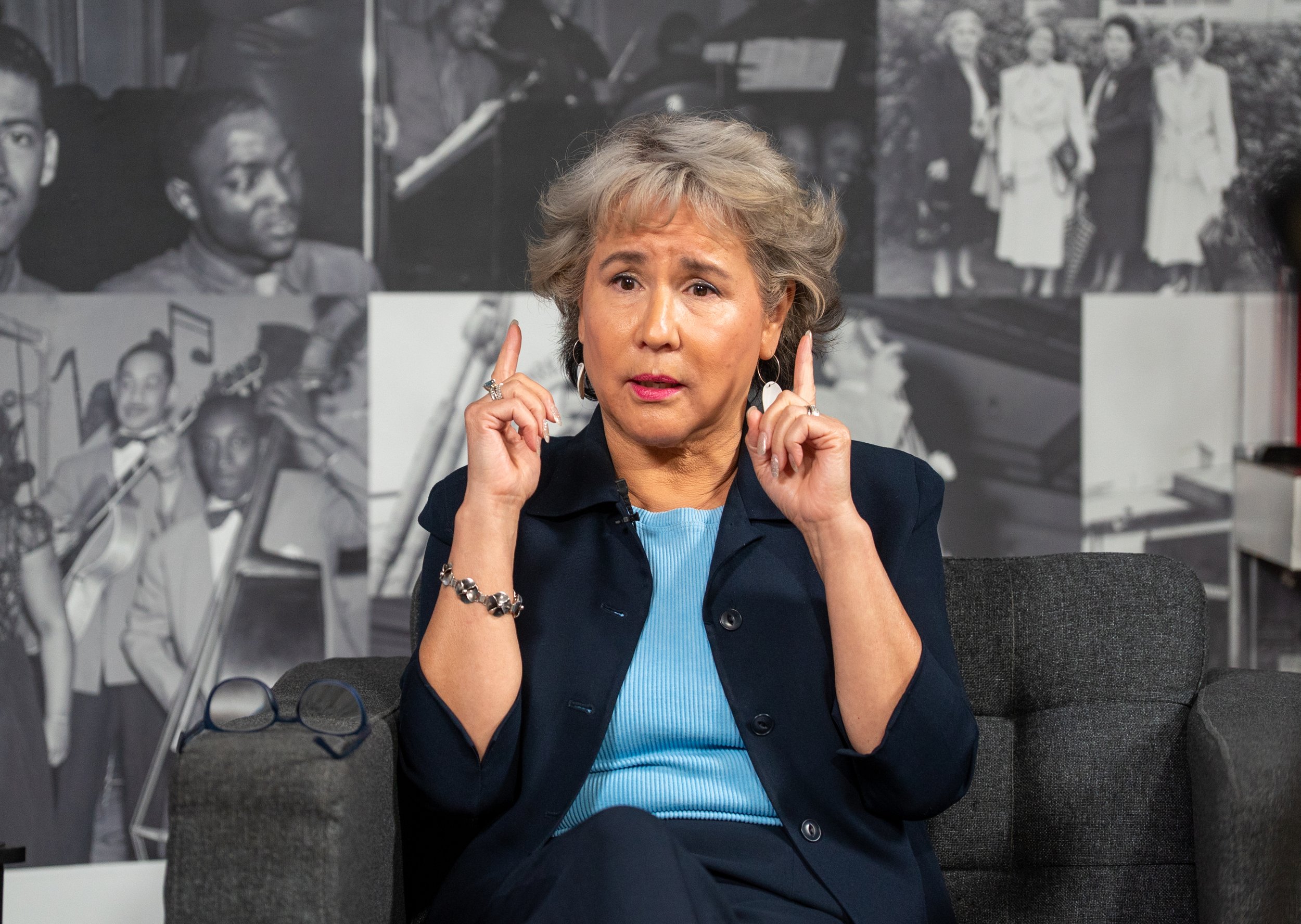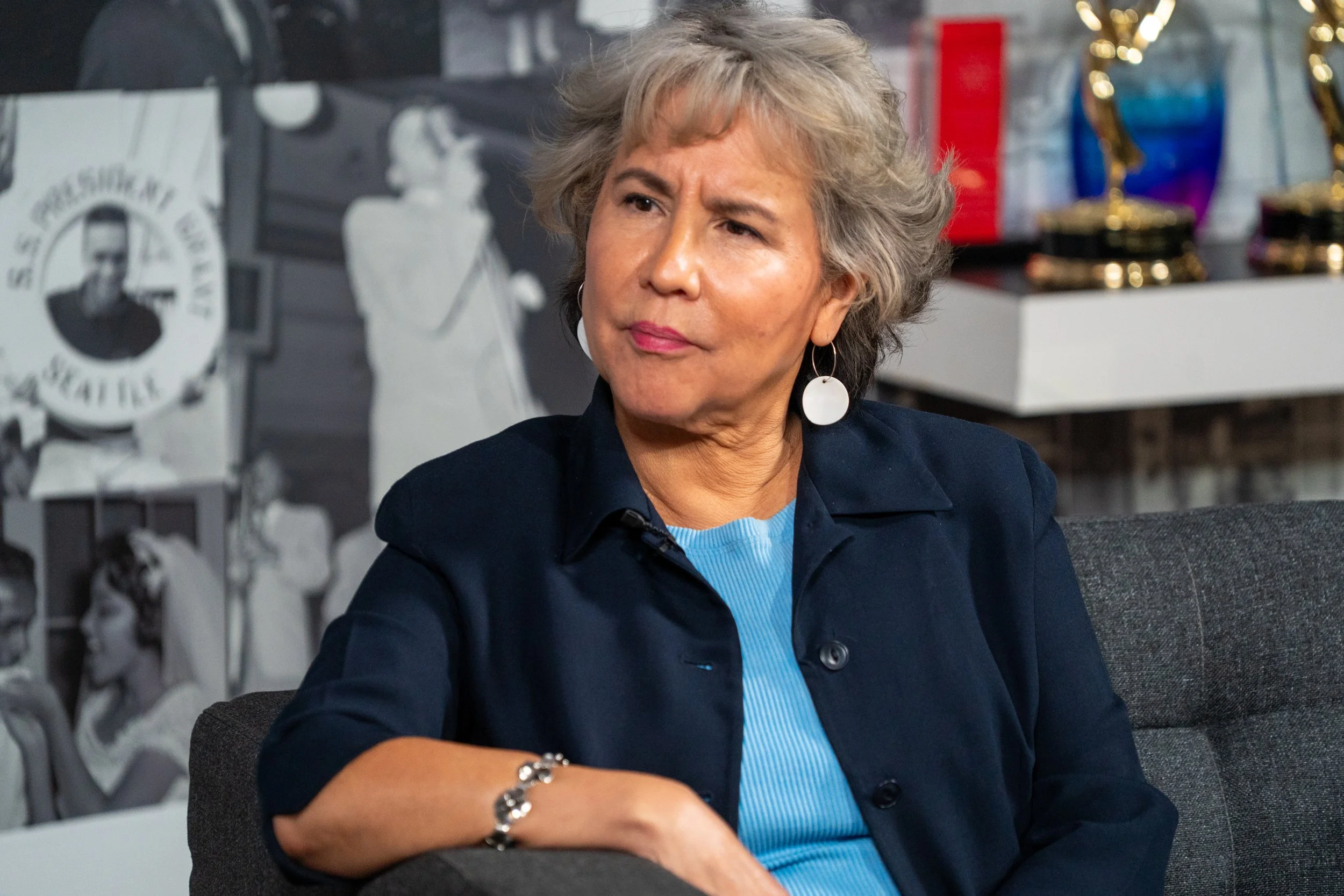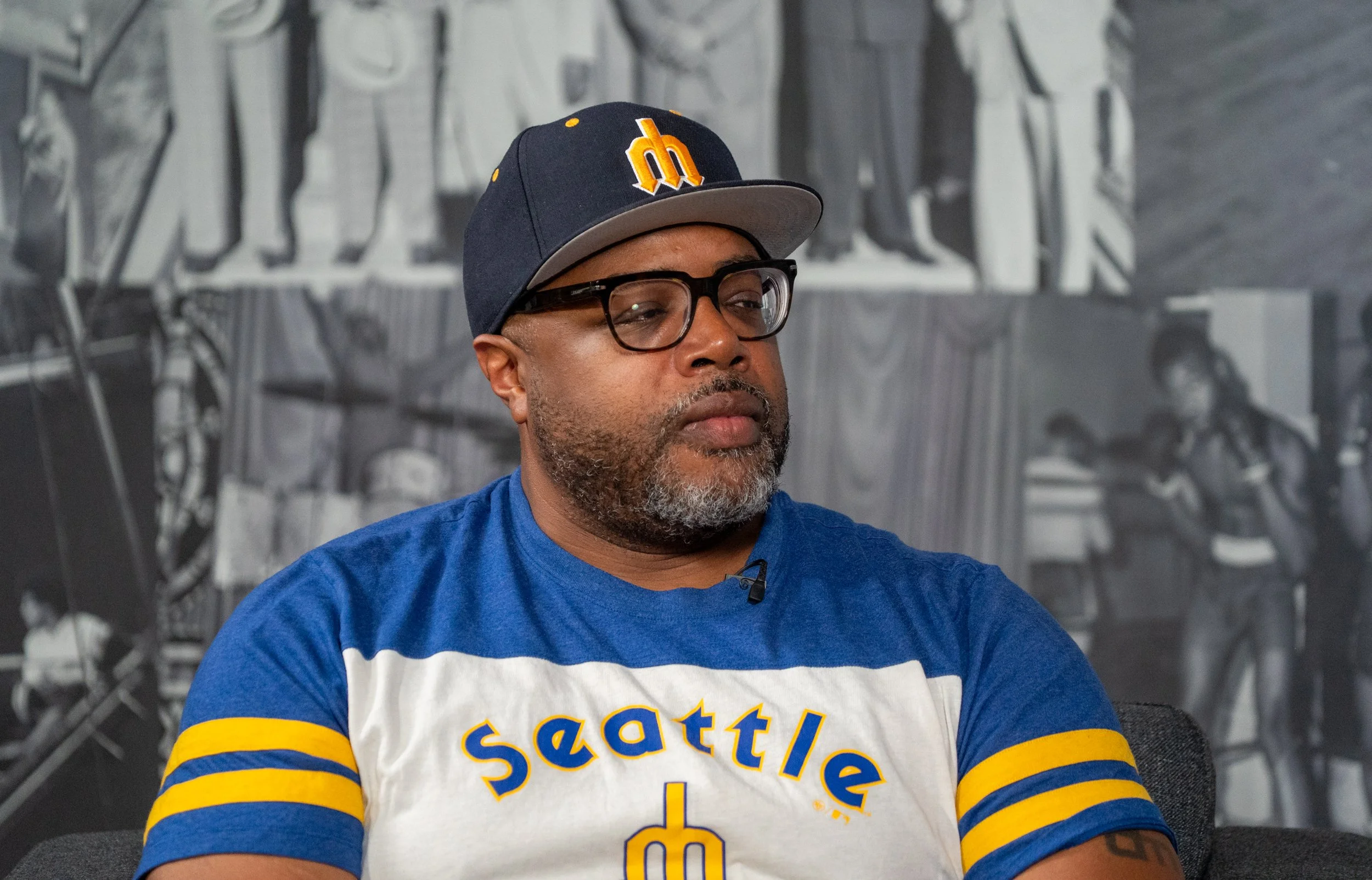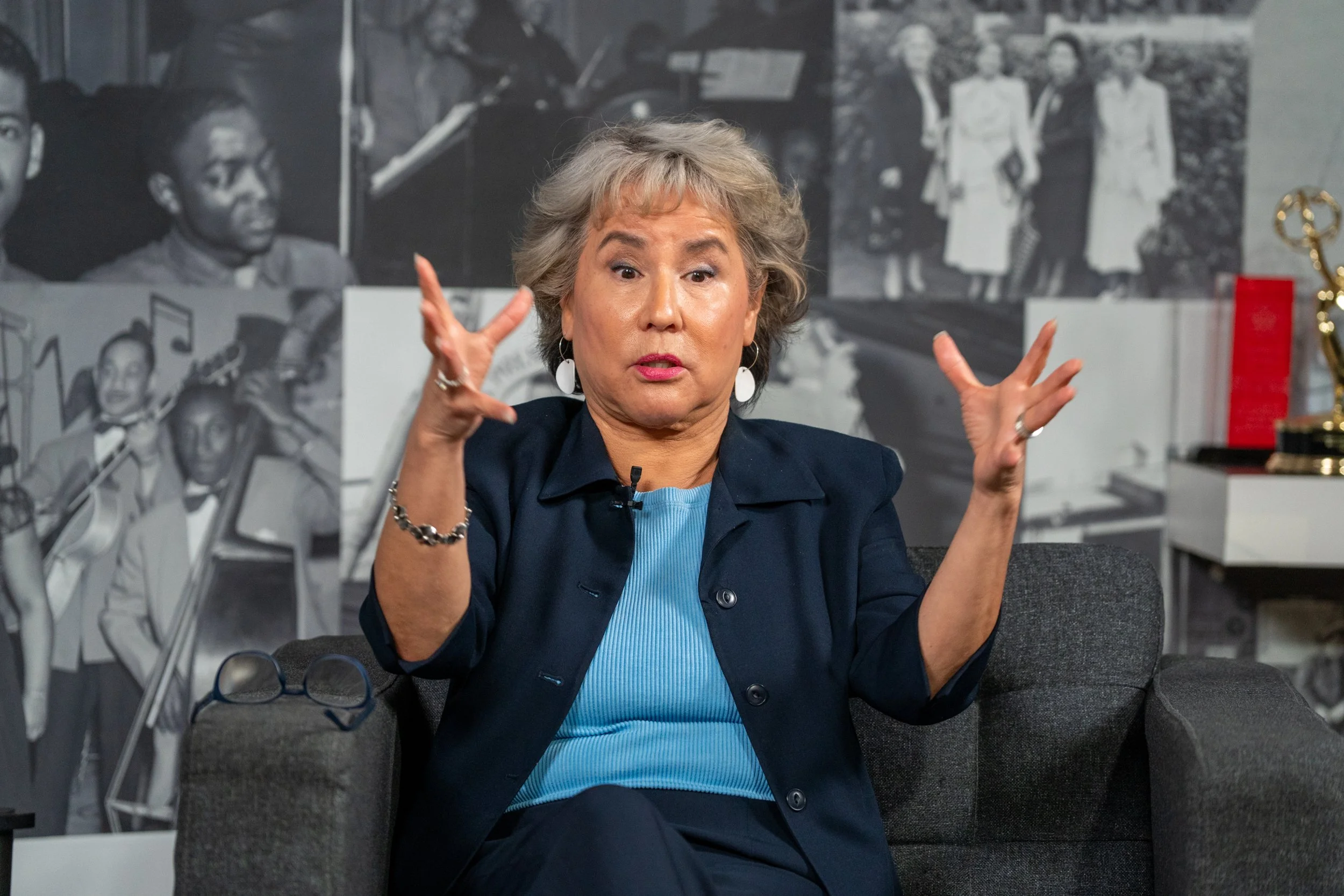Former Council President Debora Juarez Eyes Return to Seattle City Hall, Driven by a "Higher Calling"
Seattle, WA – Former Seattle City Council President Debora Juarez, a familiar face in city politics, is making a potential return to public service, this time as a candidate for the vacant District 5 (D5) seat. In a candid interview with Omari Salisbury in the Black Media Matters studio, Juarez, who stepped away from the council two years ago after an eight-year tenure, including two as council president, shared her motivations for considering a comeback, emphasizing a sense of responsibility and a "higher calling" rather than a desire for a long-term political career.
Juarez opened up about her time away from City Hall, describing it as a much-needed period to "recharge, refresh... reinvigorate, reimagine myself." She spent her break delving into post-World War II history, listening to podcasts, focusing on her health with 10,000 steps a day, and cherishing time with her grandchildren, daughters, and relatives across California and Montana. "This is what's nice about getting older," she quipped, "is that I have more time and more money, and I can actually, and I don't care about certain things." She further reflected on her previous "rugged" experience towards the end of her last term, noting that "it was dog days towards the end there because I was just trying to like keep keep it together for folks and myself." Despite the challenges, she believes she "did great things" and "changed the face of the city, the landscape, not just in D5, but downtown."
The decision to consider the D5 vacancy, however, stemmed from a deeper, more emotional place. Juarez revealed that she had been resisting calls from constituents, non-profits, businesses, and indigenous-led organizations in D5, as well as former elected officials from across the city, to return. The turning point came when she witnessed Senator Alex Padilla "get thrown on the ground and cuffed" during a press conference. This incident evoked powerful historical imagery for her, flashing "Little Rock Nine" in her mind, and making her feel like a "coward" for not stepping up.
"Where I come from, you don't have luxury beliefs, you have responsibilities," Juarez asserted, explaining her deeply ingrained sense of duty. In Indian country, she added, "when you are called to serve, you serve, particularly if you're older. That is your responsibility." This commitment extends beyond personal gain, as she stressed, "I'm responsible not just to myself and my children and my kids, I'm responsible to this world, to this country, to all of our people." This belief, coupled with the desire for ancestors to "recognize you in the next world" as someone who did good, solidified her decision.
While the D5 vacancy was the catalyst, Juarez confirmed that she had always anticipated using her "privilege and my blessings and my platform and my voice and quite frankly my power" in a meaningful way. "I knew that there was going to be a higher calling for me," she stated, "and I didn't know if it was going to be politics."
Regarding her potential return, if selected, Juarez clarified the nature of the D5 seat, noting that it's a 16-month appointment, finishing the current cycle before a 2026 election. "Finite amount of time. I know exactly how long I'm going to be there, what I got to do," she explained, also highlighting that she wouldn't be council president or on Sound Transit, two demanding roles she previously held. This limited term offers a clear focus: "My job is to take care of this seat, do everything I can, put my head down, really drill down on what we need to do for the city in D5, but mentor and bring along" future leaders. She emphasized her lack of interest in running for re-election, stating, "I did the job and I think that there's something bigger for me out there." She expressed excitement about discovering what that "bigger" purpose might be, allowing it to "come to me for the first time in my life," rather than following a rigid to-do list.
When discussing the city's pressing issues, Juarez immediately pointed to "housing, homelessness." She also highlighted public safety, lamenting the impact of officer shortages on "our Black and brown babies." Beyond these, she mentioned "standard wonky stuff" like the comprehensive plan and tree ordinances, acknowledging their importance amidst larger concerns. She clarified that a "caretaker" role for the D5 seat "isn't a lame duck" or "keeping the seat warm," but rather leveraging her experience to "do everything I can, put my head down, really drill down on what we need to do for the city in D5, but mentor and bring along" new leaders.
A significant portion of the conversation revolved around Seattle's current $240 million budget deficit. Juarez, with her experience, understands the complexities of government finances. She explained that the mayor proposes the budget, and the council "decides, you know, where to cut fat, what to put in." She attributed some of the shortfall to the "jumpstart" tax not generating anticipated revenue and the exodus of "high-income net worth people" from the city. She emphasized Seattle's role as an "economic engine" and a hub of "innovation" and "brilliant people," stressing the need to "take care of those good civic brothers and sisters that have been good to our city."
The discussion then veered into the high cost of living in Seattle, particularly the "rent is too damn high," a sentiment echoed by many residents, including Juarez's own millennial daughters who work two jobs to afford to live in the city. Juarez expressed concern that Seattle is becoming a city "where only rich people can live here." She criticized the tendency to pass laws based on "ideology" rather than practical outcomes, stating, "ideology is just the beginning of the conversation. It has to transfer into policy in acts that actually make people's lives better."
Both Juarez and Salisbury agreed on the disconnect between City Hall and the everyday citizen. Salisbury emphasized that the voices of those "most affected by city council policies" are often unheard due to their demanding lives. Juarez concurred, acknowledging that council members often engage with "advocates, the activists, the lobbyists" who represent specific interests.
This led to a broader philosophical discussion about the role of government. Juarez stated, "Government doesn't owe you a job. Government doesn't owe you a low rent. Government doesn't owe you that you could own a house." Instead, she believes government's role is to provide "access and the opportunity for the principles that are enshrined in the Constitution for the pursuit of happiness and liberty." Salisbury added that he wants government "to play a role to make things fair, as fair as it can be." Juarez highlighted the self-sufficiency of tribal communities, stating, "We're going to build a damn casino and we're going to do a golf course and a convention center. We're going to we're going to buy I mean we're going to do it for ourselves."
Addressing the pervasive polarization in Seattle, Juarez attributed much of it to media and social media. She highlighted how some media outlets create a "sense of urgency that the house is burning down" even when large segments of the population remain "unbothered." Juarez herself avoids social media, stating it "doesn't have a soul." She advocates for real-world engagement and direct conversations, emphasizing that "being honest and direct with you is the greatest form of respect and dignity I can give to you." She cautioned against relying on platforms like TikTok for news, asserting, "the revolution is not going to happen on Tik Tok. It's not going to happen on Facebook. It's not."
Juarez offered key advice for aspiring politicians: "You have to be able to admit when you're wrong. You have to be able to apologize. You have to be able to ask for help, and you have to be able to change your mind." She recalled her own experiences, including voting against defunding the police, a decision she "paid for" but stood by because she knew "who was going to get hurt if we didn't have police officers." She believes that honesty is a "coin of the realm" in politics and that even when facing criticism, telling the truth ensures that "you don't have to remember the lie." She also shared insights from her mentors, emphasizing the importance of respecting the office and the robe, even if one disagrees with the person holding it.
Salisbury underscored the importance of elected officials bearing witness to critical events in the city, like the 2020 protests. He recalled his live stream where he called for "electeds to bear witness," and while some showed up, he noted that during election season, some "twisted up" their presence rather than simply stating they "answered the call of constituents in my city." He believes a "good politician" is someone who is "realistic and tell the truth" and understands that politics, like baseball, is a "game of failures."
Ultimately, a deep-seated commitment to service frames Debora Juarez’s potential return to the Seattle City Council, a pragmatic approach to governance, and a desire to uplift her community, even in the face of a polarized political landscape. Her past experiences, both professional and personal, have shaped a leader who is unafraid to speak her mind and prioritizes the well-being of the city's most vulnerable. Her emphasis on "earned confidence" and direct communication offers a different perspective in a political climate often characterized by division and performative gestures. As Seattle navigates its budget challenges and social complexities, Juarez's potential return could bring a seasoned, no-nonsense approach to City Hall.









